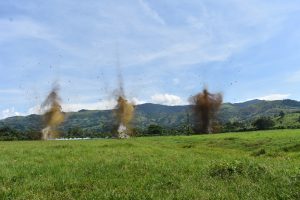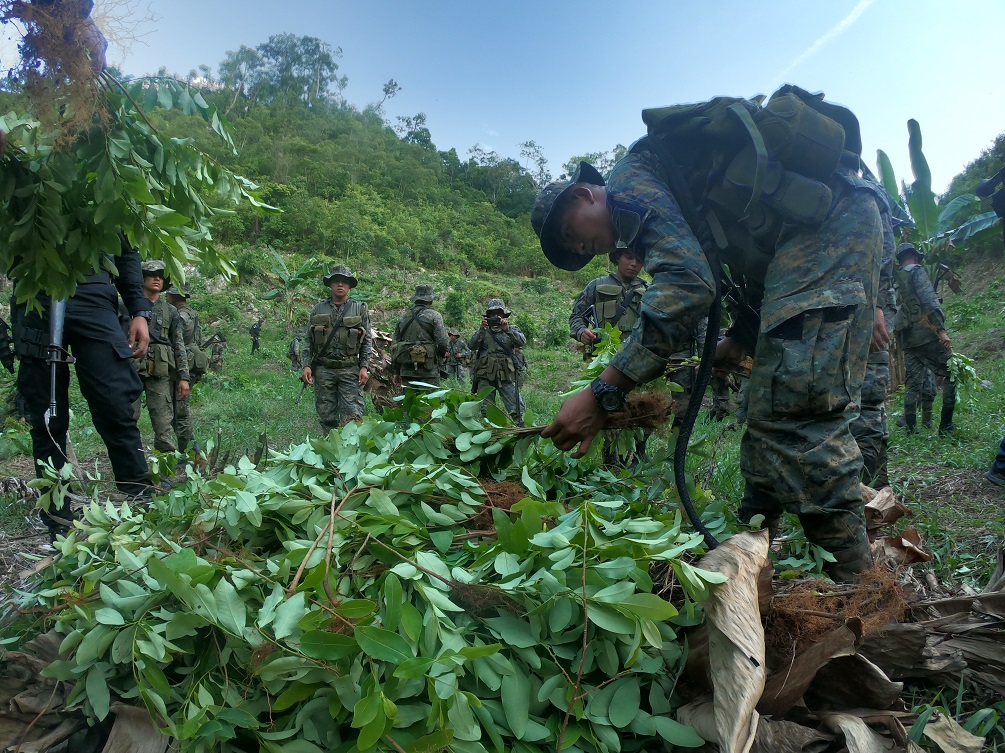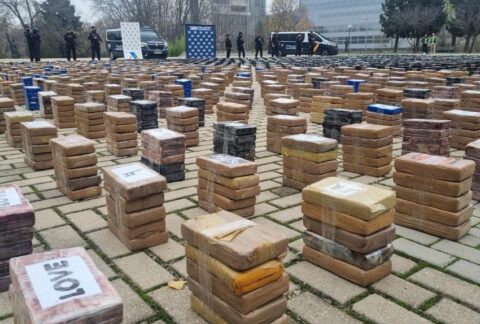A Guatemalan Army patrol drove to El Estor, Izabal department, in the first week of September in pursuit of an aircraft loaded with drugs. Upon arriving at the landing site with information provided by the defense radar, the service members were intercepted by drug traffickers who took them to a school, killed three units, and injured three others.
“These murders highlight the risk to freedom, justice, security, and development. They put institutional order, governability, and state security at risk,” said Guatemalan President Jimmy Morales as he issued a stage of siege to restore order in 22 municipalities in the departments of Izabal, Petén, Zacapa, El Progreso, Baja Verapaz, and Alta Verapaz.
Guatemalan Minister of National Defense Luis Miguel Ralda Moreno told the press the measure would last 30 days. According to the country’s Law of Public Order, in the event the stability of social and government institutions are in danger, the president can decree a state of siege and assume military authority through the Defense Ministry with powers to restrict freedom of action, movement, demonstration, and the carrying of weapons. The President can also detain one or more residents without the need for a court order.
From transit to producer

A month after the measure was implemented, in addition to restoring the law and apprehending common criminals, operations revealed that Guatemala was no longer a transit point for drugs, but that it had become a drug-producing country.
During the interventions, authorities seized drug labs with almost one ton of cocaine worth $14 million ready to be sold. They also destroyed 23 crops with about 1.5 million coca plants and disabled 16 clandestine airstrips, the Ministry told the press.
“One of the causes of this change [from transit to producing country] is the reduced costs and risks in the transit of illegal substances from South America to Guatemala, and from here to Mexico and the United Sates,” said Ralda. This motivated organized crime to use communities with little government presence to install a model of illicit cultivation and infrastructure to produce cocaine on their land, the minister said.
Prolonged stage of siege
The results of September led the Guatemalan government, through Congress, to ratify on October 10, the state of siege for another 30 days in the 22 controlled municipalities.
Ralda emphasized that this new term would allow them to detect more drug labs and plantations, and generate trust among residents to encourage them to report suspicious activities. “These measures allow security forces with room to act within the legal framework, but above all to establish respect for human rights,” he concluded.









